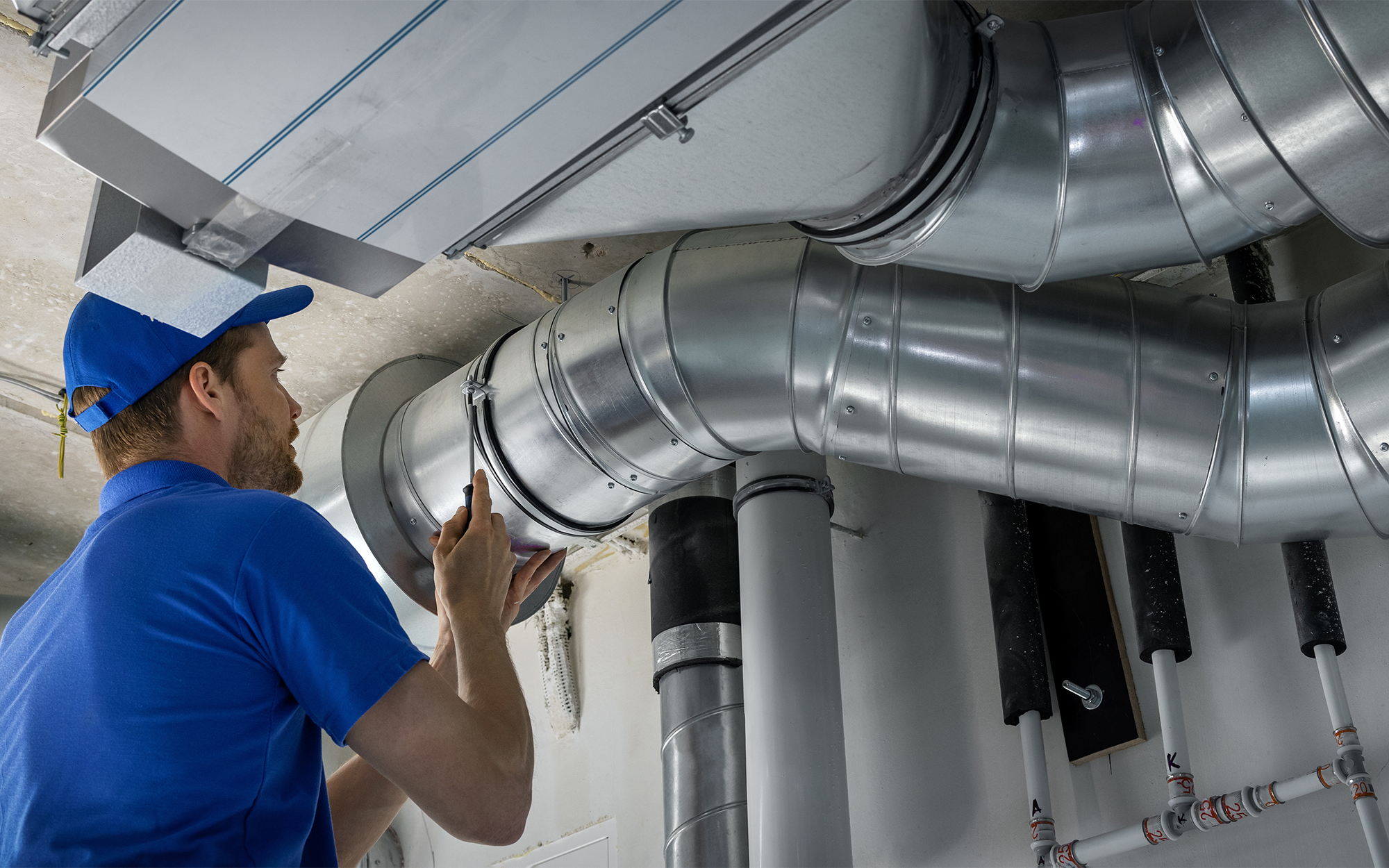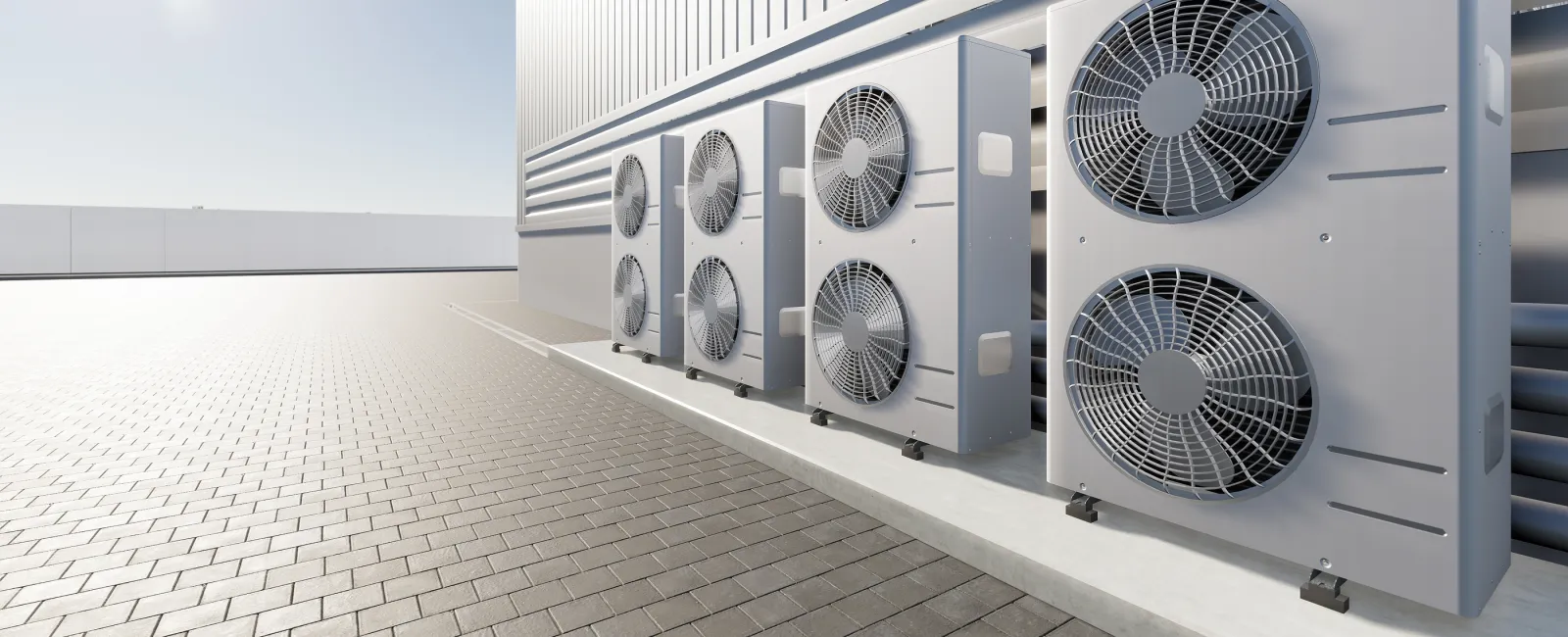Recognizing the Various Kinds Of HVAC System for Ideal Efficiency
Recognizing the various kinds of heating and cooling systems is necessary for house owners aiming to enhance convenience and energy efficiency. Central air systems offer consistent temperature level control, while ductless mini-split systems supply flexibility. Heatpump provide efficient year-round environment monitoring. For smaller rooms, window and mobile a/c unit work as functional options. Geothermal systems use consistent below ground temperatures for sustainable heating & cooling. Each alternative holds special benefits, prompting a closer examination of which might suit specific needs best.
Central Air Systems
Several property owners look for ways to improve indoor convenience, comprehending central air conditioning systems is vital for effective climate control. Central air operates by distributing great air via a system of ducts, dispersing it uniformly throughout the home. This sort of system includes a number of key elements, consisting of an exterior compressor, an indoor evaporator coil, and a network of ductwork.
The compressor cools cooling agent, which after that absorbs warmth from indoor air as it goes through the evaporator coil. This cooled down air is pressed via the ducts and right into living spaces, assuring a consistent temperature level. Air conditioning systems are recognized for their efficiency, often utilizing programmable thermostats to maximize energy usage. Normal maintenance, such as filter adjustments and system checks, is necessary to guarantee durability and performance. Understanding these elements helps homeowners make notified decisions pertaining to installment and maintenance, eventually boosting comfort and energy effectiveness in their homes.

Ductless Mini-Split Systems
Ductless mini-split systems offer an adaptable option to traditional central air, accommodating house owners seeking effective climate control without the need for comprehensive ductwork. These systems consist of an outside compressor device and several interior air-handling devices, enabling for targeted air conditioning and heating in specific areas or spaces. This zoning capacity enhances convenience by allowing individuals to change temperatures based on individual preferences, ultimately resulting in power cost savings.
Installation is generally less complex and less invasive contrasted to ducted systems, which can be useful for older homes or rooms with limited architectural alterations. Additionally, ductless mini-split systems typically include energy-efficient innovations, such as inverter-driven compressors, which enhance power intake based upon need. Their small style likewise permits various positioning alternatives, making them excellent for tight or unique rooms. Therefore, ductless mini-split systems have actually obtained appeal among home owners searching for modern, efficient a/c remedies.
Warmth Pumps
Warmth pumps represent a flexible and energy-efficient alternative for both heating and cooling down property rooms. These systems run by moving warmth instead of generating it, making them especially reliable in moderate climates. During warmer months, heatpump remove warm from inside your home and launch it outside, offering air conditioning. Conversely, in winter season, they reverse this procedure, attracting heat from the outdoors air or ground to warm the inside.
There are 2 key kinds of heatpump: air-source and ground-source (or geothermal) Air-source heatpump are a lot more common due to their less complex installment and reduced initial cost, while ground-source designs flaunt greater performance and security in performance. Additionally, warmth pumps can significantly lower power expenses and carbon footprints when compared to typical heating approaches, making them an eco-friendly selection. Overall, heatpump stand as an engaging option for property owners looking for efficient environment control throughout the year.
Window and Portable Air Conditioners

On the various other hand, mobile a/c unit provide flexibility, as they can be conveniently moved from room to area. These systems usually require an airing vent set to exhaust warm air through a window, yet they offer a practical choice for short-lived cooling requirements.
Both sorts of ac unit appropriate for renters and those looking for to avoid comprehensive setup procedures. Customers ought to take into consideration factors such as BTU capacity, power performance rankings, and sound degrees when choosing a system to guarantee peak efficiency for their certain room and air conditioning needs.
Geothermal Heating and Air Conditioning Systems
As power efficiency comes to be progressively essential, geothermal cooling and heating systems have gained popularity for their sustainable method to climate control. These systems make use of the steady temperature levels located below ground to provide heating in winter months and air conditioning in summer season. By utilizing the earth's natural thermal energy, geothermal systems substantially reduce dependence on nonrenewable fuel sources and lower energy expenses.

Geothermal systems generally need less maintenance compared to typical A/c systems, resulting in lasting financial savings. With boosting understanding of climate modification, these systems stand for a forward-thinking remedy for those looking for reliable and eco-friendly heating and cooling choices
Regularly Asked Concerns
Exactly how Typically Should I Solution My A/c System?
Heating and cooling systems ought to preferably be serviced two times a year, as soon as in the spring and once in the autumn. Routine maintenance assists guarantee effectiveness, extends life expectancy, and avoids pricey break downs during top use periods.
What Size Heating And Cooling System Do I Need for My Home?
Identifying the ideal size for a cooling and heating system calls for computing the home's square footage, insulation high quality, and environment. A professional evaluation warranties optimal effectiveness, convenience, and power savings tailored to the certain requirements of the home.
Can I Install a Heating And Cooling System Myself?
Setting up a heating and cooling system individually is possible, but it needs technological understanding and abilities. Mistakes can result in inefficiency or safety and security dangers, so consulting a professional is frequently recommended to ensure appropriate installation and compliance with regulations.
What Are the Indications My A/c System Demands Repair?
Indicators that a heating and cooling system needs repair consist of unusual sounds, irregular temperatures, boosted power expenses, unpleasant smells, and frequent cycling. Motivate interest to these signs can avoid check here further damages and warranty optimal system efficiency.
Just How Can I Enhance My cooling and heating System's Power Effectiveness?
To boost heating and cooling power effectiveness, one must frequently change filters, seal ducts, set up a programmable thermostat, guarantee appropriate insulation, and timetable regular upkeep checks. HVAC experts. These activities collectively improve performance while minimizing energy consumption and prices
Central air conditioning systems give consistent temperature control, while ductless mini-split systems supply versatility. Central air conditioning operates by flowing cool air with a system of air ducts, distributing it uniformly throughout the home. Central air conditioning systems are known for their efficiency, commonly using programmable thermostats to optimize power usage. Ductless mini-split systems provide a versatile choice to conventional main air conditioning, catering to house owners looking for efficient environment control without the need for considerable ductwork. Geothermal systems normally call for much less maintenance compared to typical Cooling and heating systems, resulting in lasting financial savings.